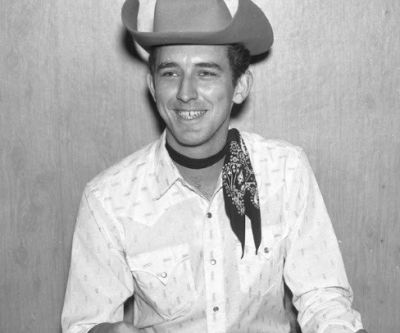December 20, 2018
Tuesday
8:00 p.m.
Minneapolis, MN
Test schedule
A live performance with Robin and Linda Williams at the Cedar Cultural Center
May 20, 2018
Sunday
3:00 p.m.
Lexington, MA
Lexington, MA
A live performance at the Saenger Theatre
April 10, 2018
Tuesday
8:00 p.m.
Tulsa, OK
Tulsa, OK
A live performance at the Brady Theater
March 17, 2018
Saturday
8:00 p.m.
Long Beach, CA
Long Beach, CA
A live performance at the Carpenter Performing Arts Center
March 15, 2018
Thursday
7:00 p.m.
Mobile, AL
Mobile, AL
A live performance at the Saenger Theatre
“The Wordsworth Effect” by Joyce Sutphen. Used with permission of the author. (buy now)
Is when you return to a place
and it’s not nearly as amazing
as you once thought it was,
or when you remember how you felt
about something (or someone) but you know
you’ll never feel that way again.
It’s when you notice someone has turned
down the volume, and you realize
it was you; when you have the
suspicion that you’ve met the enemy
and you are it, or when you get
your best ideas from your sister’s journal.
Is also-to be fair-the thing that enables
you to walk for miles and miles chanting to
yourself in iambic pentameter
and to travel through Europe with
only a clean shirt, a change of
underwear, a notebook and a pen.
And yes: is when you stretch out
on your couch and summon up ten thousand
daffodils, all dancing in the breeze.
It was on this day in 1859 that Charles Dickens’s (books by this author) novel A Tale of Two Cities (1859) was published. It begins:
“It was the best of times, it was the worst of times, it was the age of wisdom, it was the age of foolishness, it was the epoch of belief, it was the epoch of incredulity, it was the season of Light, it was the season of Darkness, it was the spring of hope, it was the winter of despair …”
It was on this day that Harper Lee’s (books by this author) To Kill a Mockingbird, was published, the story narrated by six-year-old Scout Finch in the fictional town of Maycomb, Alabama. It was an immediate best-seller, a Pulitzer Prize winner, and an instant American classic. It continues to sell incredibly well, with 30 million copies still in print.
The book’s title appears in a scene in chapter 10, where Scout remembers something her dad, Atticus, has said and asks her neighbor Miss Maudie about it.
“I’d rather you shot at tin cans in the back yard, but I know you’ll go after birds. Shoot all the bluejays you want, if you can hit ’em, but remember it’s a sin to kill a mockingbird.” That was the only time I ever heard Atticus say it was a sin to do something, and I asked Miss Maudie about it.
“Your father’s right,” she said. “Mockingbirds don’t do one thing but make music for us to enjoy. They don’t eat up people’s gardens, don’t nest in corncribs, they don’t do one thing but sing their hearts out for us. That’s why it’s a sin to kill a mockingbird.”
It’s the birthday of the artist best known for a painting of his mother: James Abbott McNeill Whistler, born in Lowell, Massachusetts (1834). Whistler himself later decided he would have preferred to come from St. Petersburg, Russia. He said, “I shall be born when and where I want, and I do not choose to be born in Lowell.” He did live in St. Petersburg for a while, when he was nine and his father got a job as a civil engineer for the railroad. He took private art lessons, enrolled in the Imperial Academy of Fine Arts, and later spent some time in London with relatives. The family moved back to America after the death of Whistler’s father.
Whistler’s mother wanted him to be a minister, but he enrolled in the West Point Military Academy instead. He didn’t distinguish himself by his academic performance, and he had a rebellious streak, wearing his curly hair longer than was allowed. The superintendent — Robert E. Lee — gave him several chances to reform, but eventually was forced to kick him out. He took a job as a mapmaker, drawing mermaids and sea monsters in the maps’ oceans, and in 1855, with some help from a wealthy friend, he left for Paris to study art. He never returned to the United States, and eventually settled in London.
In 1885, Whistler gave his famous “Ten O’clock Lecture” to general acclaim. One reviewer wrote, “[T]he Prince’s Hall was crowded […] There were lords and ladies, beauties and their attendant ‘beasts,’ painters and poets, all who know about Art, and all who thought that they did […] all seemed delighted with ‘Jimmy.'”
In the hourlong lecture, Whistler talked about his philosophy of “art for art’s sake.” Unlike most Victorians, he didn’t believe art or artists had a responsibility to convey a moral message. His most famous painting was titled Arrangement in Grey and Black No. 1 (1871), but it’s more commonly known as “Whistler’s Mother.” It’s a portrait of Anna Matilda McNeill Whistler in a black dress, seated in profile against a gray wall. When Whistler’s scheduled model didn’t show up for a sitting, he decided to paint his mother instead.
Today is the birthday of Elwin Brooks White (books by this author), born in Mount Vernon, New York (1899). He started publishing essays when he was in his mid-20s. Eventually, The New Yorker decided to hire White as a staff writer, and he wrote for the magazine for nearly 60 years. In 1938, he and his wife — the New Yorker’s fiction editor, Katharine Angell — left New York City and moved to a farm on the coast of Maine. There he continued to write essays, and his reflections on farming for Harper’s were collected in the book One Man’s Meat (1942).
For the January 1948 issue of Atlantic Monthly, he contributed an essay called “Death of a Pig,” about his futile attempt to save a dying porker. In it, he wrote, “I discovered … that once having given a pig an enema there is no turning back, no chance of resuming one of life’s more stereotyped roles. The pig’s lot and mine were inextricably bound now, as though the rubber tube were the silver cord.” And though he often said there was no connection, his second children’s book — Charlotte’s Web (1952) — is also a story about a pig. But this time, the pig is saved from the slaughter through the efforts of a little girl and a clever spider.
In the summer of 1948, White found himself back in New York City in the middle of a heat wave. So over a couple of sweltering days in a room at the Algonquin Hotel, he wrote Here is New York (1948), a love letter to the city that was once his home. He said, “On any person who desires such queer prizes, New York will bestow the gift of loneliness and the gift of privacy. […] No one should come to New York to live unless he is willing to be lucky.”
Today is the birthday of Jhumpa Lahiri (books by this author), born in London (1967). Her parents were Bengali immigrants from India. When Lahiri was two years old, her father got a job as a librarian at the University of Rhode Island, and they moved to America. On weekends, the whole family would get together with other Bengali families, sometimes driving for hours to other states for a party. The adults cooked Bengali food and spoke Bengali and reminisced; the kids all watched television together. And even though she’s lived in America from toddlerhood, she struggles with not feeling American. “For me,” she says, “there is sort of a half-way feeling.”
Throughout her childhood, Lahiri wrote stories to entertain herself. She went to college at Barnard, then to graduate school at Boston University. She was on the verge of going to work in retail when Houghton Mifflin agreed to publish her first book for a small advance. That book was The Interpreter of Maladies (1999), a collection of nine stories about Bengalis and Bengali-Americans living in suburban New England. The publishers didn’t expect to sell many copies so they only released it in trade paperback. As expected, it didn’t get much notice at first, but one day she got a phone call from a woman from Houghton Mifflin, asking a lot of questions about Lahiri’s background. Lahiri assumed it was for promotional materials. “And then she said, ‘You don’t know why I am calling, do you?'” Lahiri recalled. “And I said, ‘No, why are you calling?’ And she said, ‘You just won the Pulitzer.'” It was the first time a trade paperback had ever won the Pulitzer Prize.






